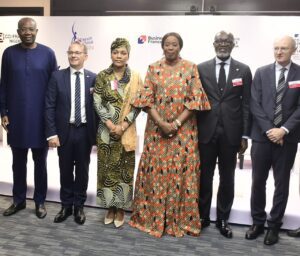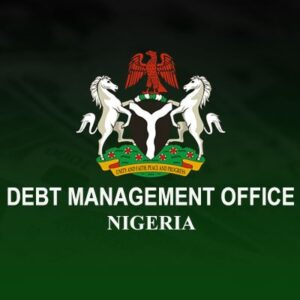
FG to procure 29.6m doses of Johnson & Johnson vaccine
The federal government of Nigeria is committed to procuring 29.6 million doses of the Johnson & Johnson vaccine through the AVAT initiative, which is coordinated by Afrexim Bank, Zainab Ahmed, Minister of Finance, Budget and National Planning has disclosed.
Speaking recently at Collaborative Africa Budget Reform Initiative (CABRI) General Assembly webinar, she said: “Therefore, the supplementary budget for COVID-19 vaccines will cover the cost of additional vaccines over and above those provided by COVAX, as well as the full cost of operations and logistics for delivering the vaccines around the country.
“Already, the sum of N29.1billion has been released from the Routine Immunization budgetary provision (Service Wide Vote) to the National Primary Healthcare Development Agency (NPHCDA) as an advance for the operational cost of deployment of the COVID-19 vaccines. The N29.1billion represents about 52 per cent of the amount required over 2021-22,” she said.
Ahmed stated at the 18th General Assembly of CABRI that the World Bank has indicated willingness to provide needed facilities in support of our COVID-19 vaccination plan.
She said, “The Federal Ministry of Health plans to vaccinate 70 per cent of eligible (18 years and above) Nigerians over the 2021 and 2022 fiscal years.”
She noted that the nation has received commitments from COVAX for COVID-19 vaccines that could cover 43.1 million of the eligible population, as donations from some development partners.
On the impact of the COVID-19 pandemic and the oil price crash on the Nigerian economy, she noted that before the pandemic, implementation of the Economic Recovery and Growth Plan 2017-20, prudent resource management and fiscal policy implementation had resulted in 11 consecutive quarters of GDP growth, with GDP growth rising from 1.91 per cent in 2018 to 2.27 per cent in 2019.
Ahmed also noted that the government “had begun the process of moving our economy away from its primary dependence on oil for revenues and foreign exchange, and we’re making steady gains in addressing infrastructure and human capital challenges.”
Then came COVID-19, and Nigeria’s Bonny Light crude oil price fell from a peak of US$72.2 per barrel on January 7, 2020, to below US$20 by April 2020.
“In effect, the $57 crude oil price benchmark approved in the 2020 budget became unrealistic triggering the need to adjust the following variables:
“Reduction of crude oil benchmark price from US$57 per barrel to US$28 per barrel; reduction of daily crude oil production benchmark from 2.18 million barrels per day (mbd) to 1.9 Mbps; adjustment of the official exchange rate to N360/US$1 from N305/$.”
She said that another key development in the international crude oil market that necessitated an adjustment in the fiscal framework was the large output cut by the Organisation of the Petroleum Exporting Countries (OPEC) and its allies to stabilise the world oil market.
The implication of all this, according to her, was about a 60 per cent decline in projected government revenues from the oil and gas sector, with further consequences for foreign exchange inflows into the economy.
Nigeria was exposed to spikes in risk aversion in the global capital markets, which put further pressure on the foreign exchange market as foreign portfolio investors exited the Nigerian market.
“Our celebration of an early passage of the 2020 budget and return of the budget cycle to January-December was short-lived, as the crisis created a need to go back to the drawing board to Revise our fiscal framework (including the 2020 budget); strategise to protect our economy; fund our healthcare needs to save lives, and plan a fiscal stimulus package to reflate the economy and safeguard jobs.”



